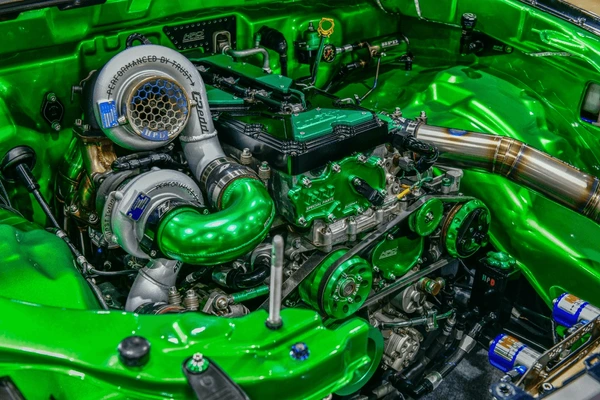With rising fuel prices and growing environmental concerns, improving fuel efficiency has never been more important. Smart tuning offers car owners a practical way to reduce fuel consumption while maintaining optimal performance. This guide explores actionable strategies, tuning techniques, and maintenance tips to maximize your car’s efficiency.
-
Understanding Fuel Efficiency and Tuning
1.1. What is Fuel Efficiency?
Fuel efficiency measures how far a vehicle can travel on a certain amount of fuel. High efficiency means less fuel consumption, which translates to cost savings and reduced carbon emissions.
1.2. Basics of Smart Tuning
Smart tuning involves optimizing a car’s settings and components to enhance performance and fuel economy. Modern cars come with factory settings designed for average conditions, but tuning allows customization for specific needs, ensuring better efficiency.
-
Key Factors Affecting Fuel Efficiency
2.1. Engine Performance
Your engine’s health is crucial to fuel efficiency. A well-maintained engine ensures complete fuel combustion, reducing waste. Poorly functioning spark plugs, clogged air filters, or dirty fuel injectors can lower efficiency.
2.2. Aerodynamics
The shape and design of your car impact its resistance to air (drag). Roof racks, spoilers, or open windows can increase drag, forcing your engine to work harder and consume more fuel.
2.3. Weight Reduction
The heavier your car, the more fuel it requires to move. Carrying unnecessary items in your trunk or installing heavy aftermarket parts can negatively affect fuel efficiency.
2.4. Driving Habits
Aggressive driving—such as rapid acceleration and hard braking—wastes fuel. Maintaining a steady speed and using cruise control on highways improves efficiency.
-
Tuning Techniques to Improve Fuel Efficiency
3.1. ECU (Engine Control Unit) Remapping
ECU remapping adjusts your car’s engine settings to optimize the air-fuel mixture and ignition timing.
- Benefits: Increases fuel efficiency and power output.
- Considerations: Professional remapping ensures the changes comply with legal standards and don’t void warranties.
3.2. Installing a Cold Air Intake
A cold air intake system increases airflow to the engine, improving combustion efficiency.
- Benefits: Boosts fuel economy and power by delivering cooler, denser air to the engine.
- Maintenance Tip: Keep the intake filter clean to ensure consistent airflow.
3.3. Upgrading Exhaust Systems
High-flow exhaust systems reduce backpressure, allowing the engine to expel exhaust gases more efficiently.
- Recommended Mods: Catalytic converters and performance mufflers for better flow without excessive noise.
3.4. Fuel Injection Tuning
Upgrading or cleaning fuel injectors ensures precise delivery of fuel to the engine.
- Benefits: Enhances combustion efficiency, reducing fuel waste.
3.5. Tire Tuning
Proper tire pressure and alignment reduce rolling resistance, improving fuel economy.
- Low Rolling Resistance Tires: These specialized tires are designed to minimize friction, boosting efficiency.

-
Maintenance Practices for Fuel Efficiency
4.1. Regular Engine Maintenance
Routine maintenance keeps your engine running at peak performance:
- Replace spark plugs and air filters as recommended.
- Use high-quality engine oil for reduced friction and smoother operation.
4.2. Monitoring Tire Health
Underinflated tires increase rolling resistance, which can decrease fuel efficiency by up to 3%.
- Check tire pressure monthly.
- Rotate tires to ensure even wear and maintain proper alignment.
4.3. Using the Right Fuel
Always use the fuel grade recommended by your vehicle’s manufacturer. Premium fuel is unnecessary unless specified and won’t improve performance in standard engines.
4.4. Keeping the Vehicle Clean
Dirt and debris on your car’s underbody increase drag. Remove roof racks when not in use, as they can reduce efficiency by up to 15% on highways.
-
Advanced Tuning Options
5.1. Turbocharging and Supercharging
These systems force more air into the engine, improving combustion. While traditionally associated with performance, they can be tuned for efficiency.
- Considerations: Installation is costly and may require engine modifications.
5.2. Hybrid and Electric Vehicle Tuning
For hybrid and electric vehicles, efficiency tuning focuses on optimizing battery performance and regenerative braking systems.
- Tip: Keep your battery charged and monitor software updates from the manufacturer.
5.3. Smart Gadgets for Real-Time Monitoring
Install OBD-II devices to monitor your fuel consumption and engine performance in real-time. Many apps provide tips based on your driving habits to improve efficiency.
-
Environmental and Legal Considerations
6.1. Emission Standards
Ensure your tuning modifications comply with local emissions regulations. Some adjustments, such as altering the catalytic converter, may lead to non-compliance.
6.2. Warranty and Insurance Implications
Some tuning modifications may void your vehicle’s warranty or affect insurance coverage. Always consult your manufacturer or dealer before making significant changes.
-
Cost vs. Benefit Analysis
7.1. Upfront Costs of Smart Tuning
- ECU remapping: $300–$600
- Cold air intake: $150–$500
- Performance tires: $500–$1,000
7.2. Long-Term Savings
Efficient tuning reduces fuel consumption, potentially saving hundreds of dollars annually. A well-tuned car also requires fewer repairs, further lowering costs.
Conclusion
Improving fuel efficiency through smart tuning is an effective way to save money, reduce your carbon footprint, and enjoy better performance. Whether it’s ECU remapping, upgrading your exhaust system, or adopting better driving habits, each step contributes to a more efficient and eco-friendly vehicle. For advanced modifications, consult a professional to ensure safety and compliance. Start small, monitor the results, and drive smarter for long-term benefits.
Meta Description:
Learn how to improve fuel efficiency through smart tuning. Explore ECU remapping, tire tuning, and maintenance tips to save fuel and enhance performance.
Tags:

